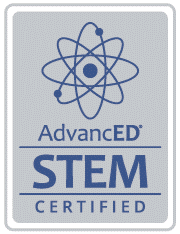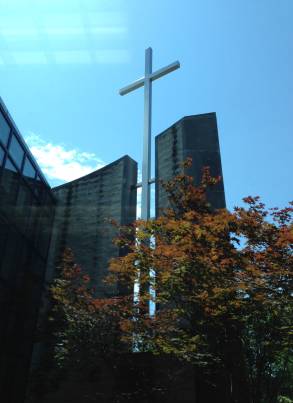When a student graduates from Rockhurst, there are fundamental skills he should have attained while matriculating. A Rockhurst graduate should be able to write in a proficient manner, Experimentation is the foundation of science. Discover a problem, postulate a hypothesis, and then determine an experiment that can test that hypothesis…this is the format that we reinforce with our students. The foundation of the experiment is the content delivered in class; the content allows the students to problem solve and determine the best experiment.
Students learn by listening in class and processing content, but to really make an impact, they must experience the material. If I am talking to someone who has no concept of the game of baseball and I explain the game to them….how to play it, what equipment is used, what it feels like to hit a ball, what it is like to experience a game in person…they might have some idea of the nature of the game. However, if instead I take them to a Major League Baseball field, let them walk around the field, let them sit in the dugout during a game, and let them experience baseball….they will have a long lasting understanding of the game. In order for students to truly grasp science, the experience in a laboratory is paramount.
In the past, traditional general science courses divided the laboratory experiments from the “lecture” aspect of the course. Most science courses used to be heavy lecture where the breakdown would be about 75% of the time spent in lecture, with the remaining 25% in the lab. The teaching would take place in the classroom and the role of the experiment was more supporting. The RHS Science Department’s goal is to adjust those two numbers, making the laboratory experience the centerpiece of our courses. To teach through an experiment is to bring a student within direct contact of the scientific principles he is studying.
The key to us accomplishing this goal is the implementation of the “double period”, which began in the 2016-2017 academic year. The “double” occurs every 6 days, meaning that for every 4 days in the classroom, the students will be in the lab for a two-period class.
The positive results from a double period lab are endless. Under the previous schedule, lab periods were only 45 minutes and were either rushed or would take several days to complete. If rushed, the teacher would never be allowed the opportunity to stop the students in the lab so they could see an example observation, to direct the class in a particular manner, or to create an opportunity for students to learn during the lab. However, with 90 minutes for each lab, teachers can now teach during the lab, allowing students to process the data they are collecting. Labs can be completed in one period, which helps students understand better how to analyze their data. The 90 minutes allotted for labs has truly enhanced their impact on our students.
Having a lab experiment every 6 days may mean that students do not spend as much time in the classroom, but the tradeoff is the impact of the laboratory. This also means that time in the lab is now on a regular schedule; students can expect a new lab experiment every 6 days. Our students are able to see the true value of the laboratory experience and the connection between it and the lecture is much stronger.
The impact on our department has been substantial. We are able to do lab experiments we were not able to do in the past, expanding our curriculum. Our experiments are much more robust as we’ve been able to do those labs we once thought were impossible. The number of labs we offer has greatly increased, with chemistry doubling the number of experiments in the lab and biology adding 5 more than they did the previous year. In addition, by nature of being in the lab that period, the number of science demonstrations performed has greatly increased too. Simply stated, we can do so much more as science teachers when we are with our students in the laboratory.
The “double period” has been as much of a game changer for our department as we have seen in decades. However the most important aspect of this change is that it is for the students, what is best for the students, and it is what will lead them to an understanding and hopefully a passion of science.




Comments